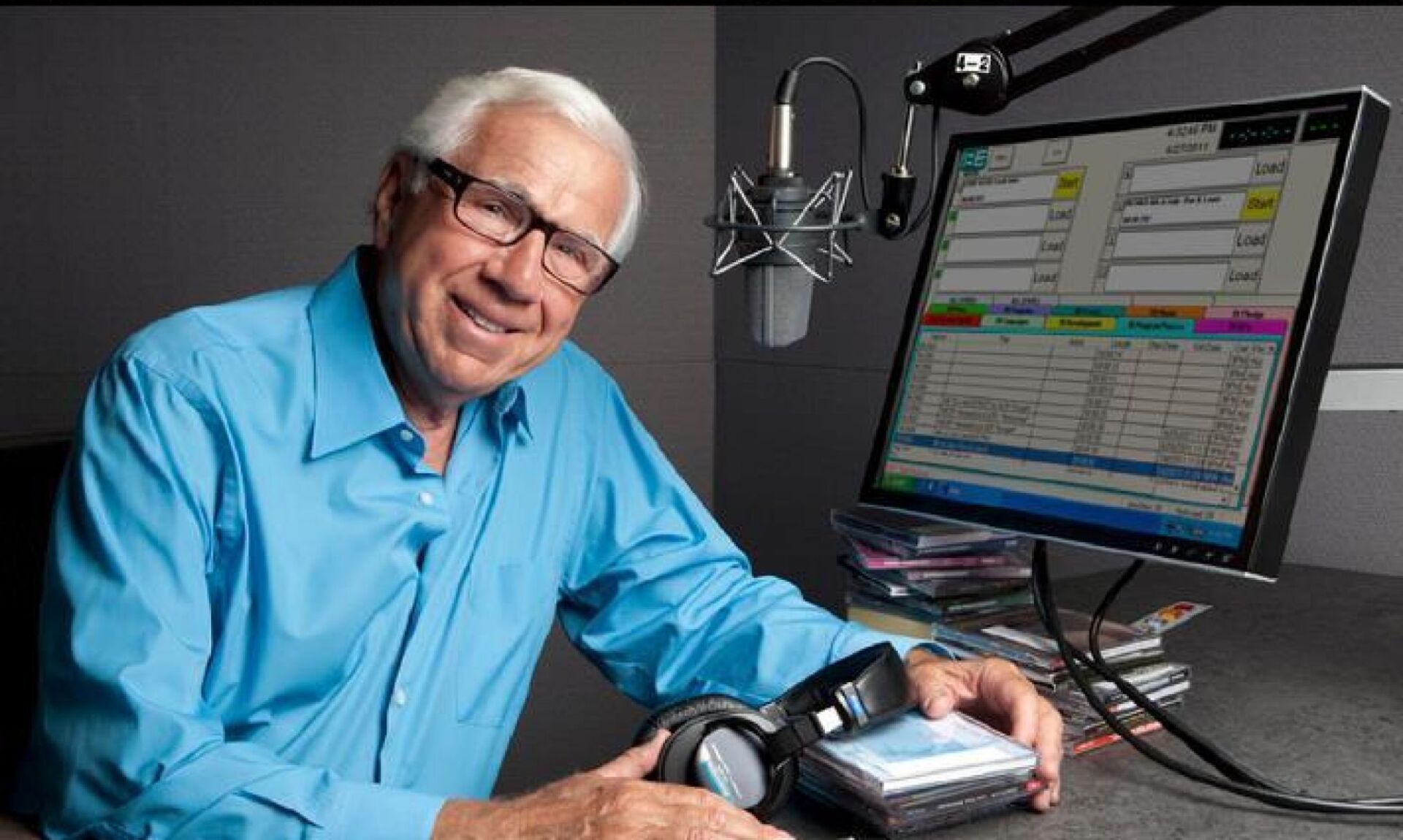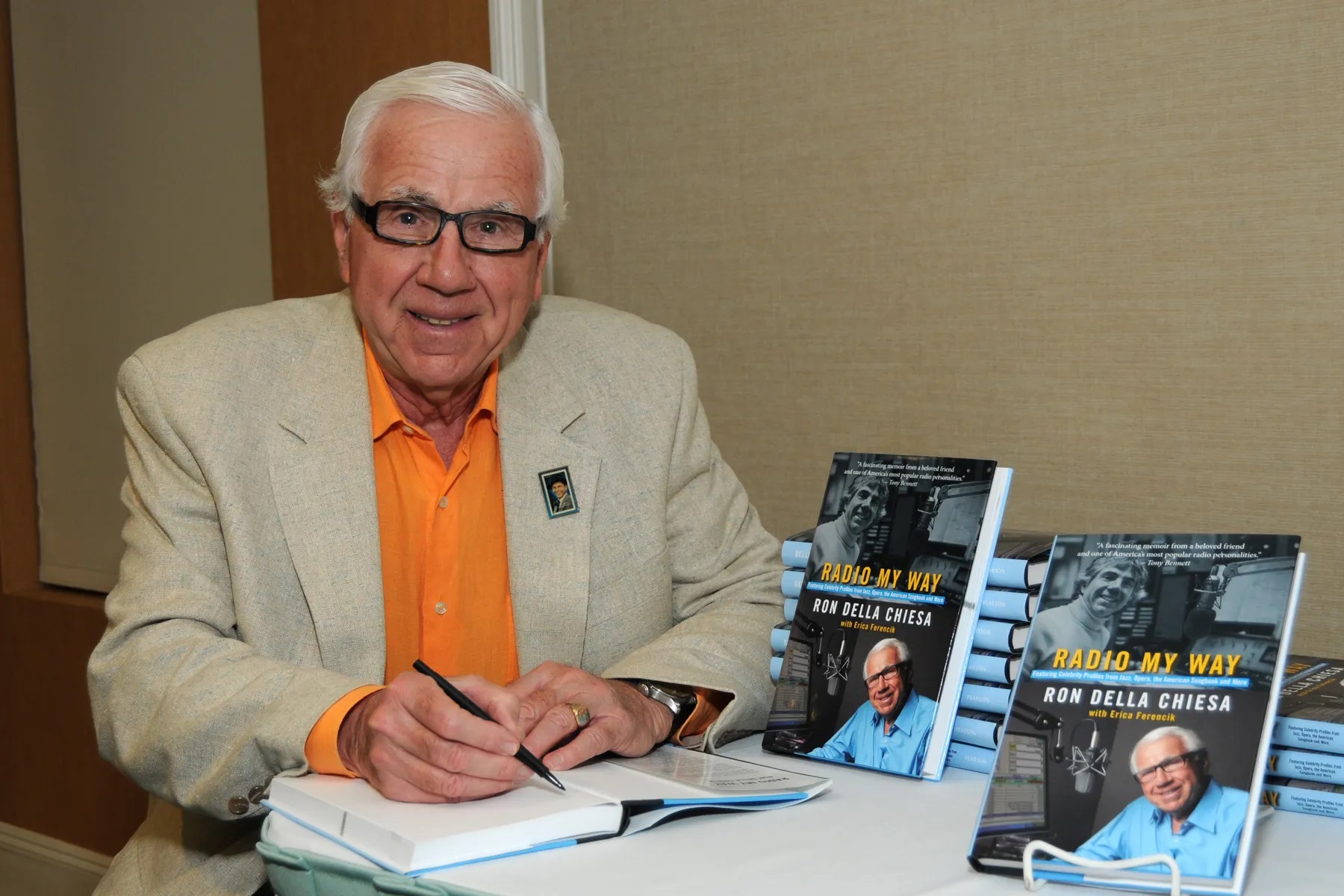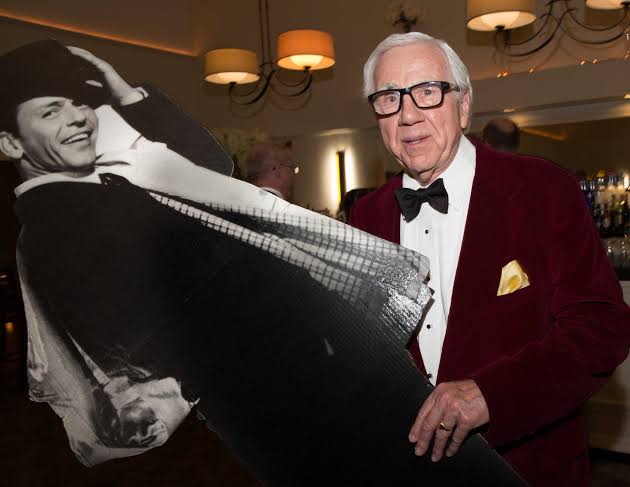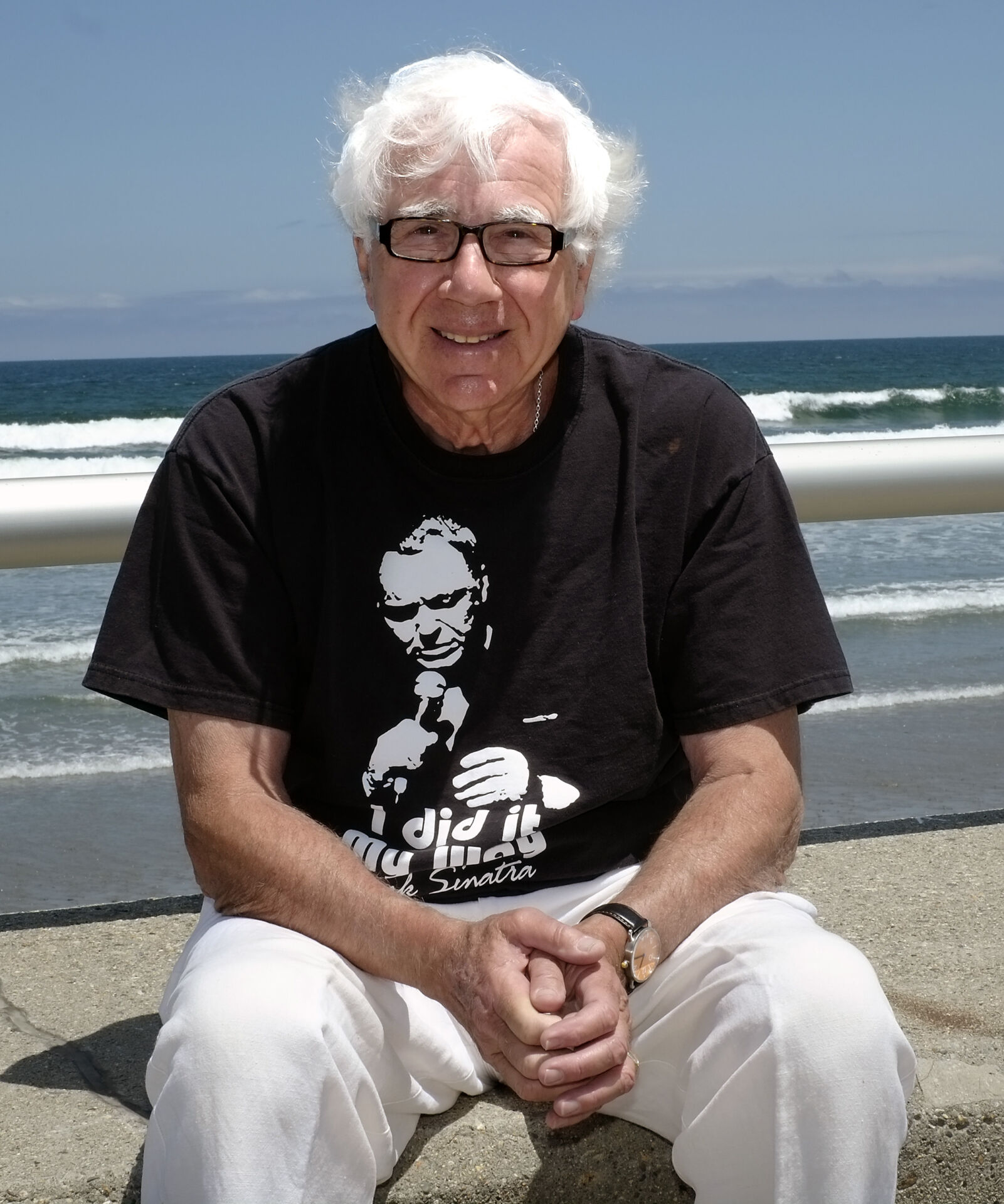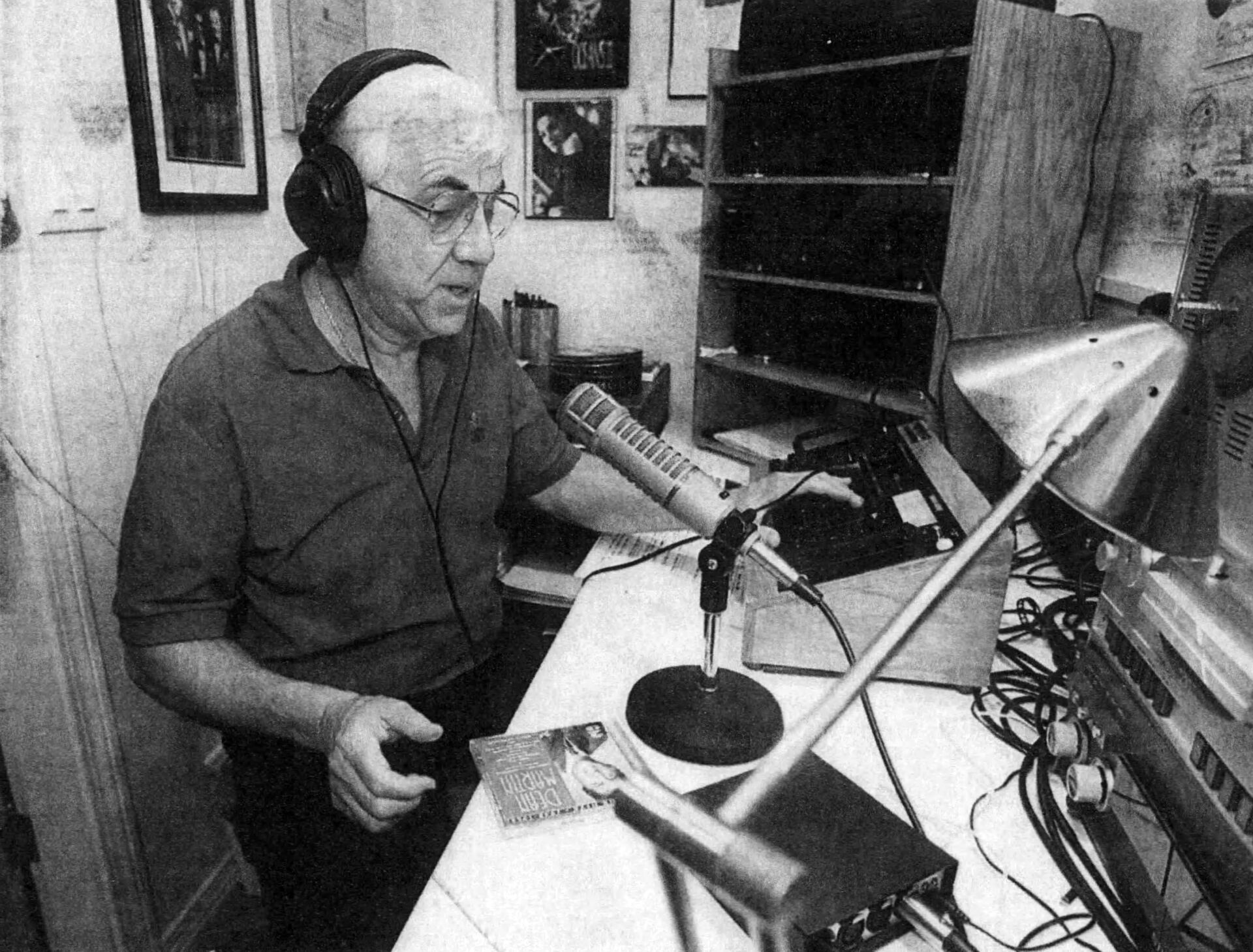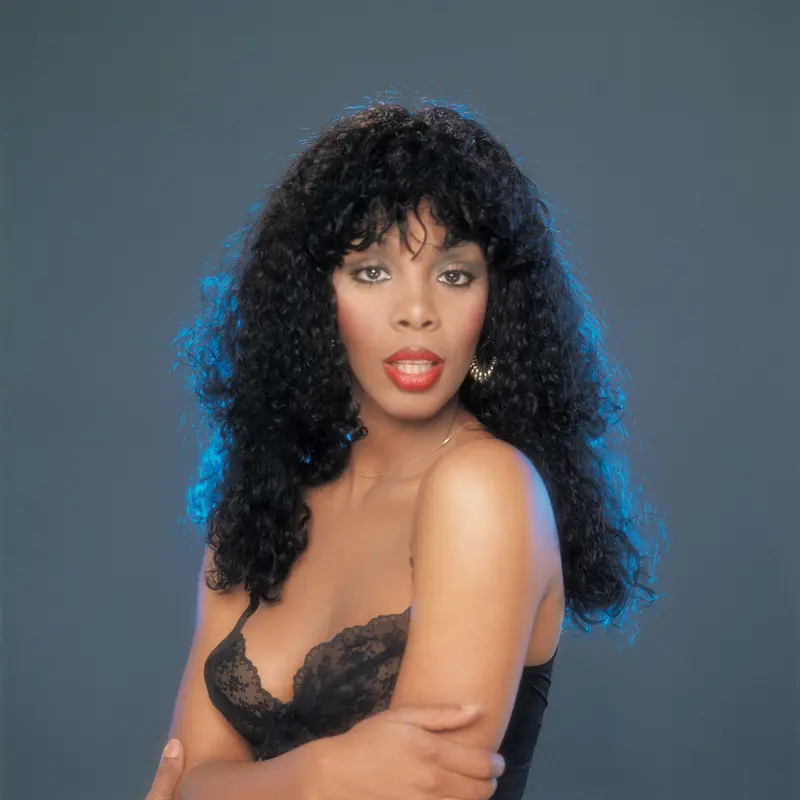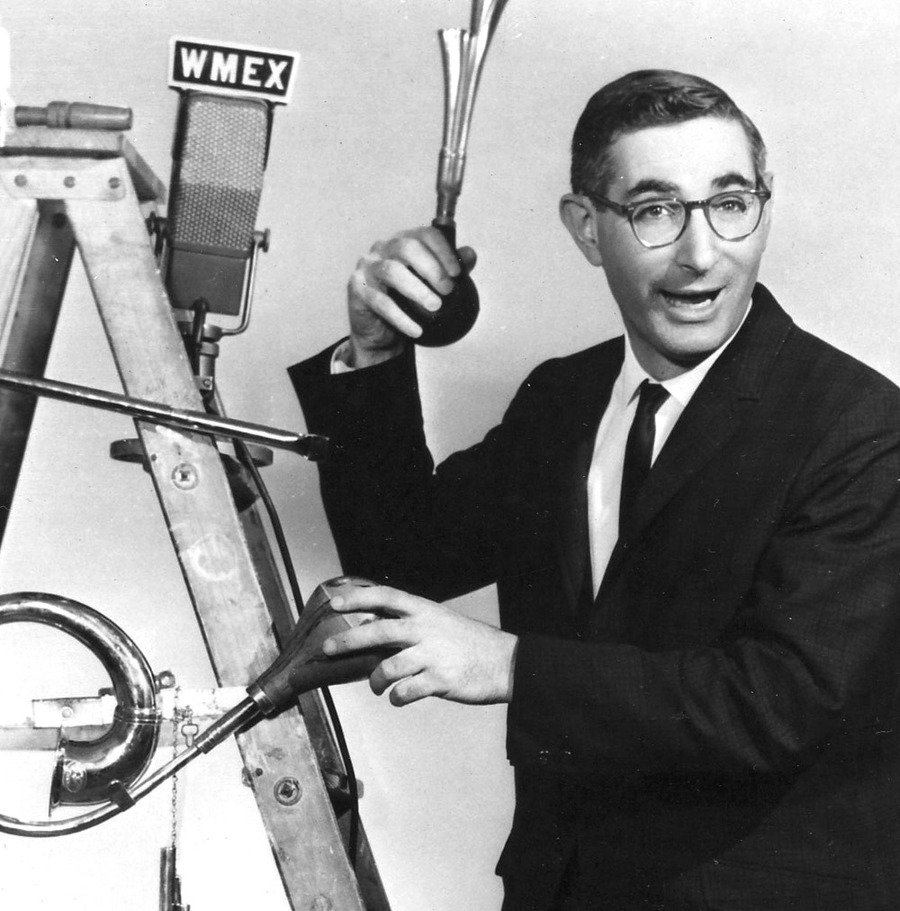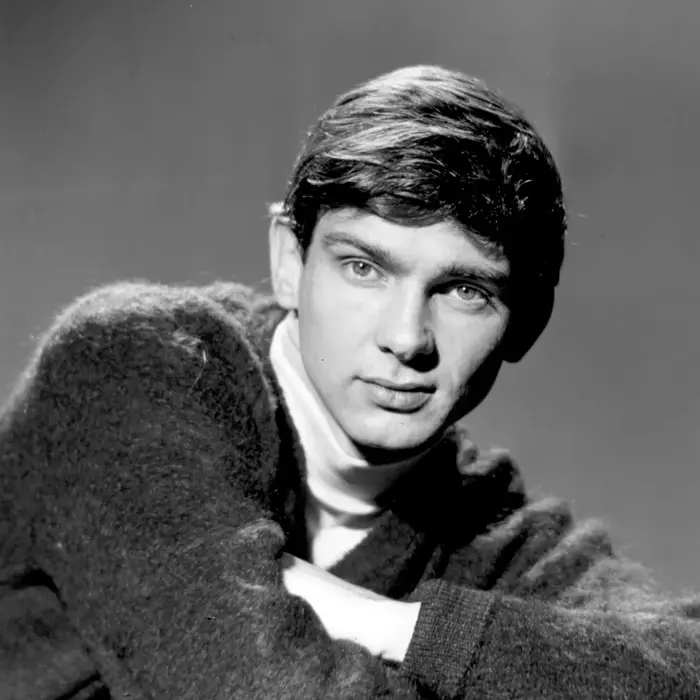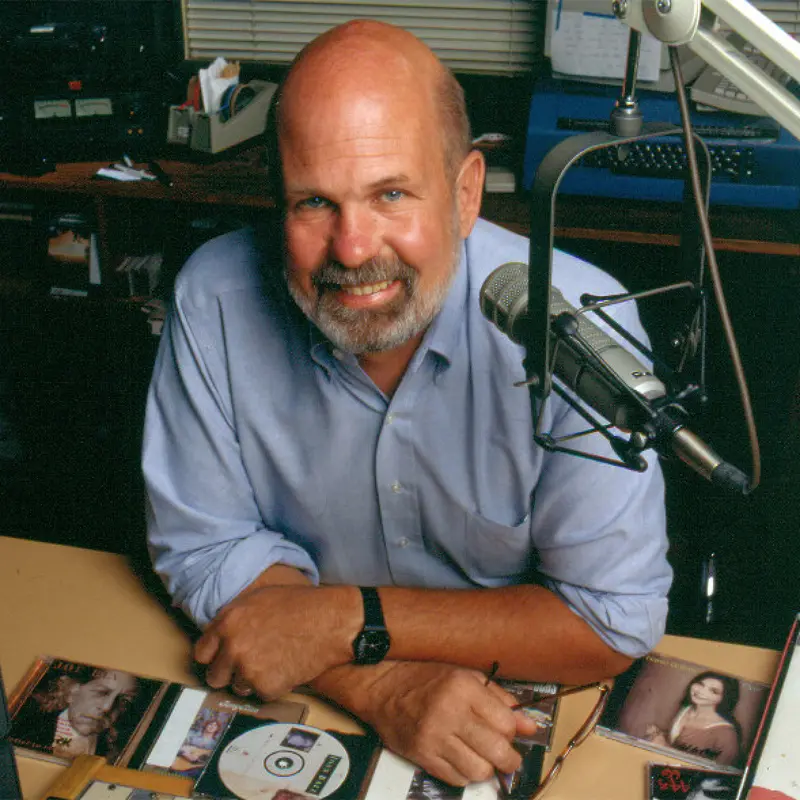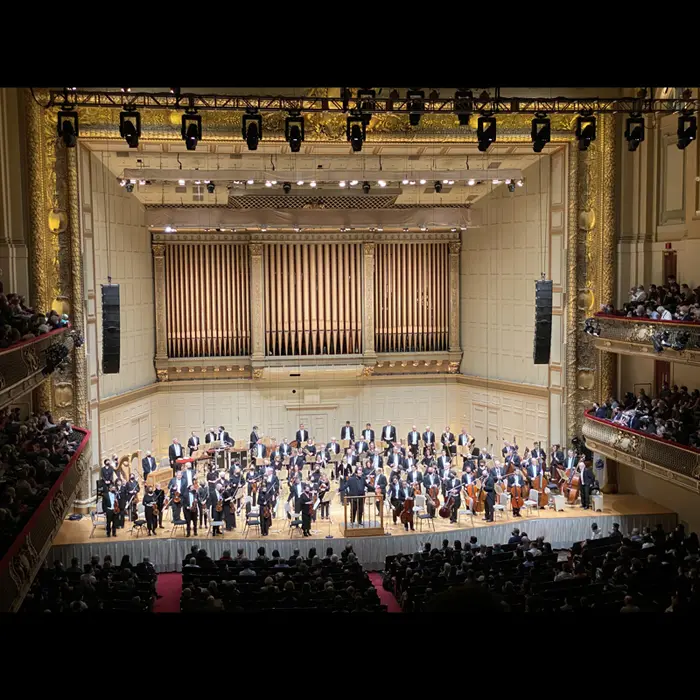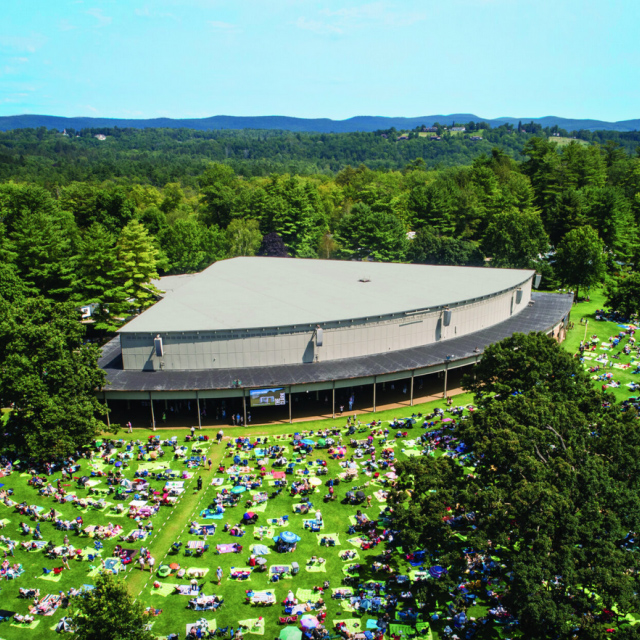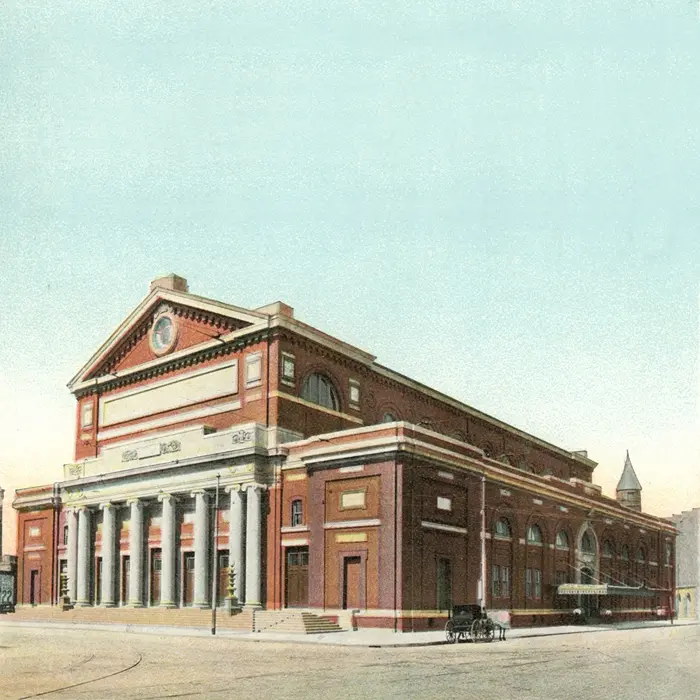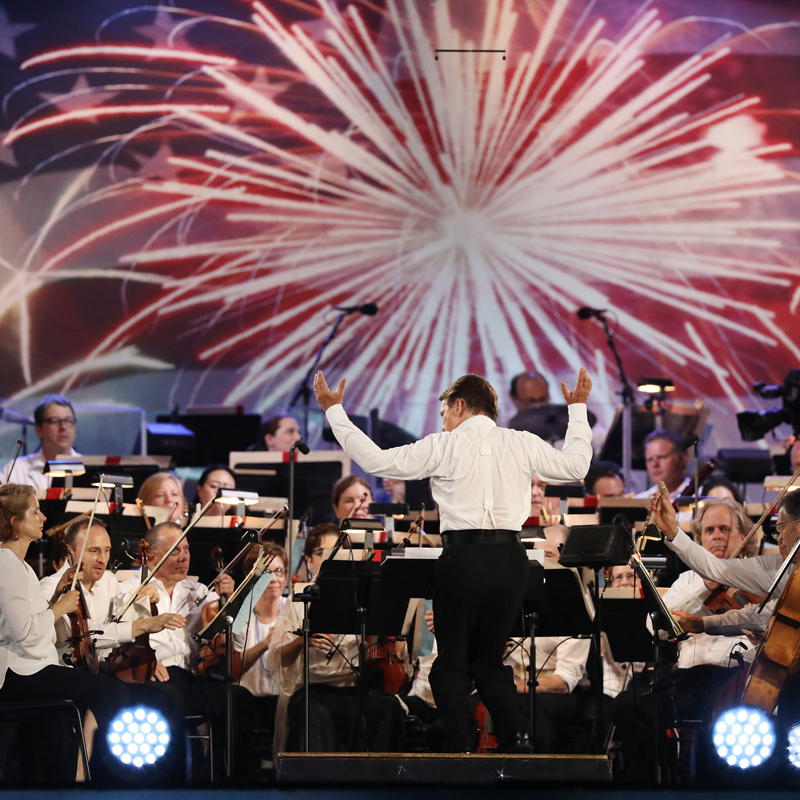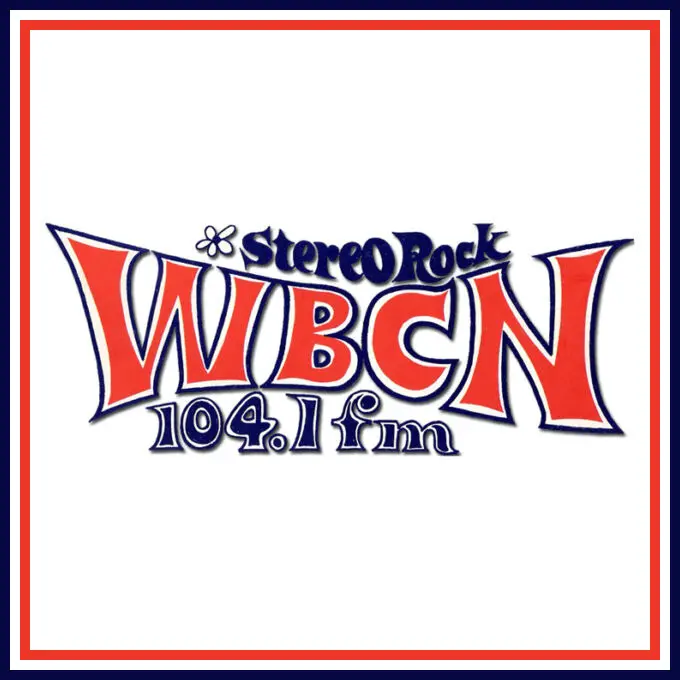Ron Della Chiesa
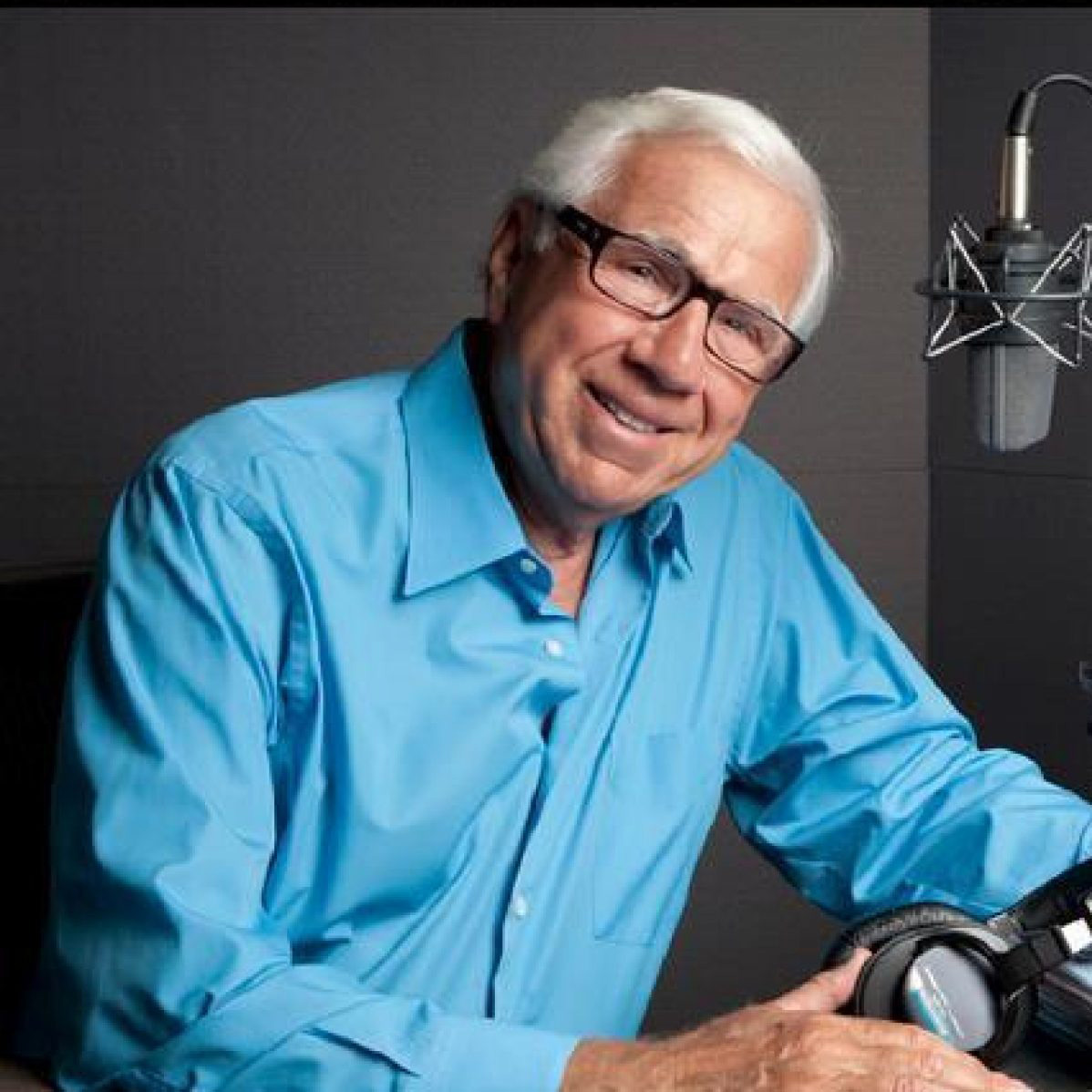
Of the hundreds of golden-voiced radio personalities who’ve manned Boston’s airwaves over the decades, some are as closely associated with a particular genre as Gene Pitney is with dramatic ballads and Donna Summer is with the dawn of disco. The name Arnie Ginsburg is synonymous with ’50s-era rock, for example, while the name Eric Jackson connotes jazz and the name Dick Pleasants connotes folk. And when it comes to classical, one name that leaps to many minds is Ron Della Chiesa, who’s been the host of Boston Symphony Orchestra performances from Symphony Hall and Tanglewood for over 30 years and an on-air presence in greater Boston for more than 60.
But while Della Chiesa is arguably best known for his classical broadcasts and his exhaustive knowledge of the genre, he’s also hosted shows featuring opera, jazz, musical theatre and selections from the Great American Songbook and interviewed dozens of artists from those genres on the air. Among them are Luciano Pavarotti, Placido Domingo, Eileen Farrell, Dizzy Gillespie, Buddy Rich, Stan Getz, Wynton Marsalis, Dave McKenna, David Raskin, Andre Previn, Carol Channing, Bobby Short, Tony Bennett, Rosemary Clooney, Diana Krall, Harry Connick, Jr. and Frank Sinatra, Jr. With his deep, perfectly pitched voice, natural charisma and lifelong passion for music in virtually all its forms, Della Chiesa is a broadcasting virtuoso who’s as accomplished in his chosen field as any first-chair violinist or first-call session cat is in theirs.
RADIO/MUSICAL BEGINNINGS
Born on February 18, 1938, Della Chiesa was raised in Quincy, Massachusetts, where his family lived on High Street. His grandfather worked in the nearby quarries, his father was an amateur opera singer who taught mechanical drawing and art at Braintree High School and his mother, who was also a teacher, instilled in her son a lasting curiosity for other cultures.
His enduring love for radio began in the mid-‘40s, when he listened to shows like The Lone Ranger and future comedic legends like Jack Benny and Fred Allen. He once built a makeshift radio studio in his bedroom (by crafting a turntable and microphone out of cardboard) and he made his on-air debut on Quincy’s first radio station, WJDA, in 1948, at age 10, doing a short spot on a children’s program. When he asked the station manager if he’d be ready for a career in broadcasting one day, the manager said he didn’t stand a chance unless he addressed what he referred to as his “diction problem”; like many Boston-area natives, Della Chiesa rarely pronounced the letter “r.”
Determined to start using all 26 letters of the English alphabet when speaking, the aspiring broadcaster took immediate action to replace his local accent with a more standard one. “I got my first tape recorder and worked on it over and over again,” he told Emily Sweeney of The Boston Globe in 2012. In his memoir, Radio My Way (Pearson, 2011), he explained the details of his method: “I sat down and made a list of all the problem words I could think of,” he wrote. “All the poor, helpless words I was flattening and murdering with my accent: ‘cahh,’ ‘bah,’ ‘latah,’ ‘nevah,’ ‘ovah,’ ‘dahk.’ The list grew daily, and daily I repeated the words over and over until I had officially welcomed the letter ‘r’ into my life.”
Della Chiesa also developed a keen interest in classical, opera and jazz in the mid-‘40s, playing his parents’ 78-rpm discs on the family Victrola and listening to radio broadcasts of the Metropolitan Opera. The first 78 he owned was a gift from his father, the children’s album Rusty in Orchestraville (Capitol, 1946), he told The Boston Globe’s Brenda Marchand in 2001, noting that it’s still part of his vast record collection. When he was around 12, Della Cheisa’s parents started taking him to jazz concerts and Boston Symphony Orchestra performances and by the time Bill Haley & His Comets’ rendition of “Rock Around the Clock” hit #1 in Billboard‘s Top 100 chart in 1955 – the year Della Chiesa graduated from Quincy High School – he had a deep appreciation for classical, jazz and opera and a thorough understanding of each genre’s history.
WBOS, WBCN
In September 1955, Della Chesa enrolled at Boston University’s School of Communications. Shortly after graduating in 1959, he landed his first on-air position at Brookline-based WBOS-AM (now WNUR), working the night shift as the announcer for what were called “ethnic shows” including The Irish Hour, The Polish Variety Hour, The Italian Melody Hour, The Boston Greek Hour and Music of the Near East. From 6am to 3pm on weekdays, he worked at Fore River Shipyard in Quincy.
In 1960, after a stint in the Army (during which time he played trumpet in an Army band), Della Chiesa joined WBCN, which was a classical station at the time; he was promoted to program director a few years later. In the spring of 1968, when ‘BCN switched to an all-rock format, he started working part time as a news and promotional announcer for WGBH-TV; later that year, he joined WGBH-FM full time as the host of two classical music programs.
WGBH, MUSICAMERICA, WPLM, STRICTLY SINATRA
From the mid-1970s until the early 1980s, Della Chiesa hosted MusicAmerica, an afternoon show on WGBH which featured a wide assortment of jazz and musical theater and included opera on Friday afternoons. He also hosted the Boston Symphony Orchestra’s Friday performances during that period and in 1991 he began hosting the BSO’s Saturday concerts in addition to the Boston Pops’ weekly ones. In January 1997, he and Paul Schlosberg, his executive producer, introduced MusicAmerica and a new program, Strictly Sinatra, on Plymouth, Massachusetts-based WPLM-FM.
In mid-2000, Della Chiesa became the host of Morning Pro Musica on WGBH, following the death of its previous host, Robert J. Lurtsema. In addition to his radio duties, he hosted Cooking Around Town on WGBH-TV, on which he visited famous Boston-area eateries and chatted with chefs as they worked. He’s also lectured on opera, the Great American Songbook and his life in radio, both on land and at sea (on cruise ships including the Queen Mary 2).
AWARDS, ACCOLADES
Della Chiesa has received a bevy or awards and accolades over the decades, including the Peace Abbey Foundation’s Courage of Conscience Award, which the organization gave him in 1995 for “being a steward of intergenerational music that binds society and elevates cultural integrity.” In 2003, he won Public Action for the Arts’ Man of the Year Award and a National Jazz Educators of Massachusetts award for his efforts in promoting jazz and other varieties of American music across New England. In 2010, Opera Boston presented him with their Ovation Award, in 2013 he was inducted into the Massachusetts Broadcasters Hall of Fame and in February 2023, in celebration of his 85th birthday, Quincy Mayor Thomas P. Koch proclaimed February 18th “Ron Della Chiesa Day” in the city.
CURRENT ACTIVITY, COMMENTS ON SINATRA
These days, Della Chiesa continues to host the BSO’s Saturday concerts, aired live on WGBH-owned WCRB from 8pm to 10pm (rebroadcast on Mondays in the same time slot), along with Strictly Sinatra and MusicAmerica on WPLM, both of which air on Sundays (the former from 7pm to midnight and the latter from midnight to 2am). He emcees occasional dance parties at Raffaels at South Shore Country Club in Hingham, Massachusetts, and splits his time between his 10-room Victorian in Dorchester and his condominium in Hull, where he hangs out with a group of longtime pals who call themselves “The Nantasket Rat Pack.”
Looking back on his career, he says that his 50-plus years at WBGH have been wonderful, writing on the station’s official website that his various roles there have allowed him to work alongside “some of the most creative and talented people in the media world.” Asked if there’s anyone he hasn’t interviewed that he wishes he could, Della Chiesa replied with a name anyone familiar with his musical tastes could have guessed: Frank Sinatra.
“But I feel like I know him,” he explained in on WBUR’s All Songs Considered in 2012. “He changed everything about singing the Great American Songbook with his phrasing and the way he’d use the best arrangers, like Nelson Riddle and Billy May. There was so much joy and exuberance in his voice because I think he knew the depths of tragedy and came back. Sinatra’s the comeback kid.”
(by D.S. Monahan)

